10 bands who hated each other with a passion
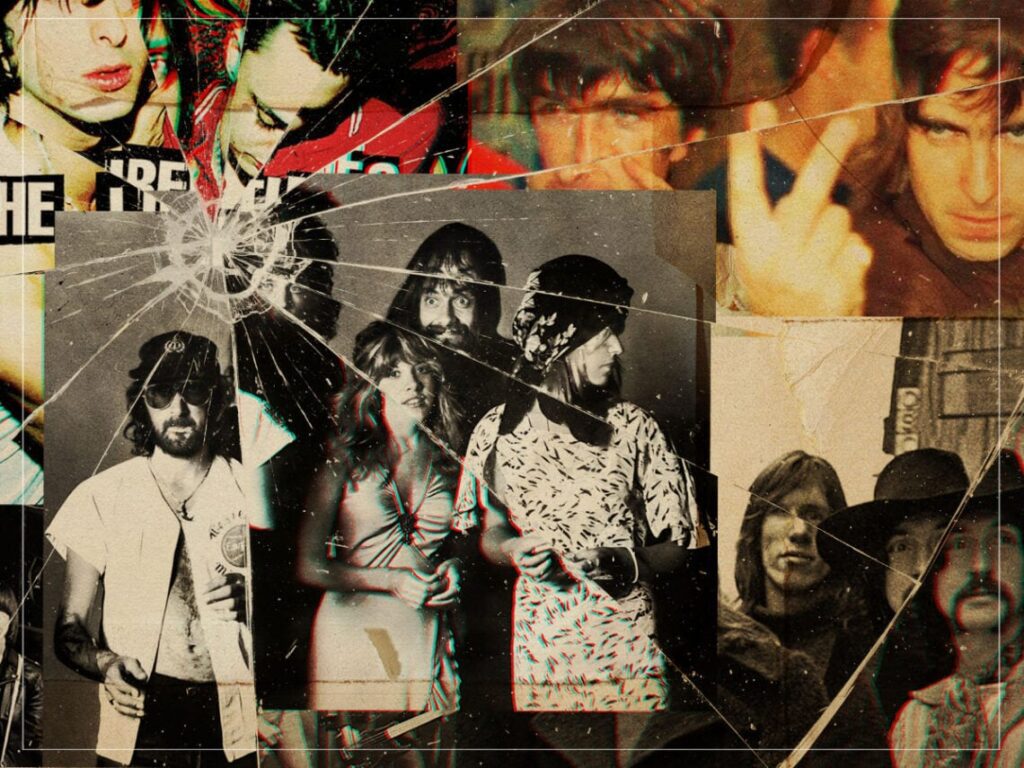 Posted On
Posted On
(Credits: Far Out / Alamy / Rough Trade Records)
Music is a tough industry to remain friends in. To share your success with one person is often trying enough, but to share it with a group of your mates, many of whom may not have contributed quite as much as you, must be pretty galling. That, and many other things, can often lead to a band splitting up as tensions heat up and friendship cools down.
The devaluing of a friendship is never enjoyable to watch, let alone be a part of. But often, keeping it together for the kids — or the fans — can, at least for a subsection of artists, provide monetary value and keep their audience happy. We’re celebrating the best bands who hated each other but managed to keep it together, at least for a little while.
Unlike most professional outfits, bands usually rely on friendship to keep their motors running and fires burning. It’s a relationship that is usually solidified during the group’s salad days — after all, what better way to form a bond with someone than to spend three-quarters of the year on the road in a cramped little van with them? However, as fame usually turns to fortune, dividend-inducing divisions will often occur.
As the adage goes, “mo’ money mo’ problems”, and most bands are affected by the influx of cash. Sometimes, it can be the disparity between the main songwriter and the rest of the group or the ego one generates as thousands upon thousands of fans constantly cheer your name. Sometimes, it can be the frivolous extra-curricular activities that come with being in a band that can drag you down.
Though most of the groups below started as friends, some were even family, they largely ended with a whimper and a feuding group tearing apart the hopes of reconciliation and a future for their band.
10 best bands who hated each other:
Oasis
What better place to start than Oasis? The Mancunian band became Britpop behemoths when the central figures of the group, brothers Noel and Liam Gallagher, took the world by storm with their unique style, unstoppable arrogance and caustic charm. While Noel was the bonafide songwriter in the band, Liam was the mouthpiece, and together, they were a force to be reckoned with.
So potent, in fact, that when they did begin to turn on one another, as brothers will do, their explosive natures always led to a disaster. The group were constantly accused of in-fighting and physical violence, perhaps arguing as only brothers can. but it would lead to the end of the band. Eventually, the group split in 2009 following “the Paris altercation”, which saw Oasis break up for good and leave a generation of fans with no place to wear their bucket hats.
At this point, the relationship between both brothers had deteriorated badly, and they were now travelling separately. It had become a lucrative job rather than a vocation, with Noel putting himself through personal turmoil in exchange for a more than handsome pay packet. “All that being said, we had two gigs left, and I reckon if I’d had got to the end of that tour and I’d had six months off, I would have just forgotten about it, got on with it,” Noel said to Esquire in 2015. “But the straw that broke the camel’s back was the night in Paris, and that was a fight. There’s no hidden darkness.”
The brothers continually batted away lucrative reunion deals for over a decade, with each fraternal member of the Gallagher clan taking it in turns to hint they may be interested. However, in 2024, things were finally put in motion, and Oasis reunited for what will be a globe-trotting tour. Whether they will make it to the end of that tour without each other’s blood on the other’s knuckles remains to be seen.
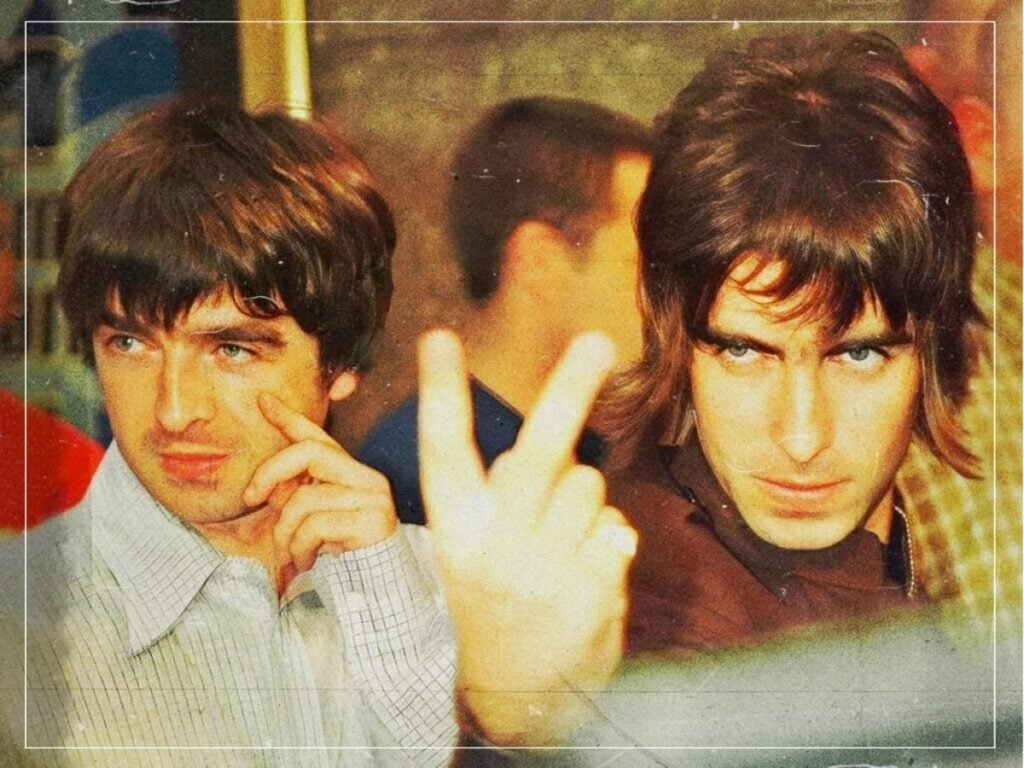
Pink Floyd
One of the most seismic bands of all time, Pink Floyd, have spent most of their years together in one feud or another. But the real rift is formed, and ever-increasing, between Roger Waters and David Gilmour, as the two men fought a war on the battlefield of ‘creative differences’.
Waters, a founding band member, has often been at loggerheads with Gilmour, who joined the group to replace their lead singer, Syd Barrett, in 1968. The group enjoyed some of the most unprecedented successes in rock music history., delivering record after record that topped charts and hailed the band as supreme overlords of prog rock. Still, as the years progressed, the two men were locked in a power struggle as their creative visions collided and, ultimately, Roger Waters left the band in 1985.
When Waters originally withdrew from the group, he immediately locked horns with Gilmour in a bitter legal battle that would last years. To announce his departure, Waters stated EMI and CBS, invoking the ‘Leaving Member’ clause in his contract, and as the main creative force in the band, he didn’t believe Pink Floyd could continue in his absence. Therefore in October 1986, Waters started High Court proceedings to formally dissolve Pink Floyd, labelling the group a “spent force creatively”.
David Gilmour and Nick Mason opposed this, stating that Pink Floyd was going nowhere and that Waters couldn’t declare it dead while the group was still trying to make music. Waters eventually came to an agreement, which saw him resign after careful legal considerations in 1987. Ever since then, the two men at each end of the Pink Floyd spectrum have continued to trade veiled insults and insinuations.
Since then, things have soured even further, with the feud taking on a more political stance in recent years. Though they briefly reunited in 2008 for the spectacular music event Live8, the chances of them ever getting back together again are about as likely as Gilmour growing his long hair back.
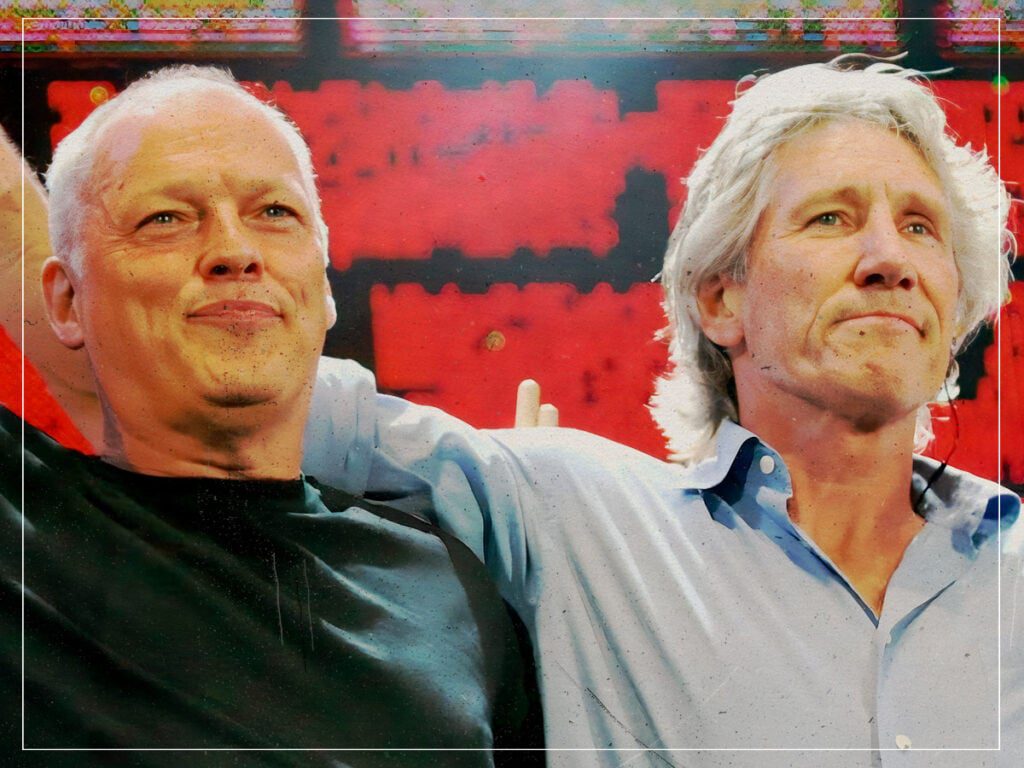
Fleetwood Mac
A caveat must be added to this entry; though Fleetwood Mac were undoubtedly all angry, hateful and hurt by one or two different band members during their years together, they have (just about) managed to keep it together over the five decades they’ve been together. It might be one of the most astonishing feats in music history and it nearly didn’t happen on several occasions.
Discounting Peter Green’s departure from the group, and Stevie Nicks’ dalliance with solo work, the soft-rock giants have always found a way of keeping their tempestuous timeline moving forward.
Of course, the most notable moment of their mutual disdain came during the recording of Rumours which saw both the couples in the group (Lindsey Buckingham and Stevie Nicks as well as John and Christie McVie) acrimoniously split. Not only did that hefty doses of cocaine add to the increased tension, but each injured party saw fit to pen a song about their perceived offender.
Somehow, the band managed to pull it all off and deliver one of the greatest albums of the 20th century. Stevie Nicks would eventually seek solo stardom but would return to her rightful home at the front of Fleetwood Mac. Buckingham was recently kicked out of the band for breaching their trust and becoming “abusive”. Unlike most of the bands on our list, Fleetwood Mac have managed to keep it together. Just.
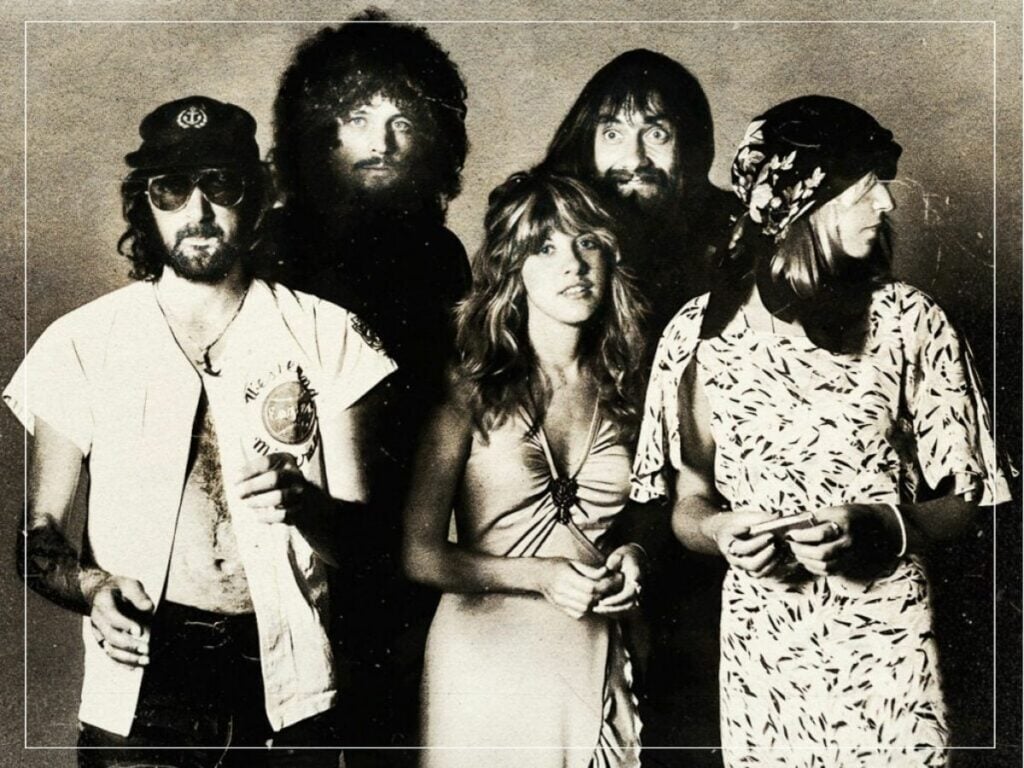
The Libertines
If one band picked up where Oasis left off, it was The Libertines. The quartet were a powerhouse of rock revival sounds and took the baton that Britpop had thrown back at them and began pacing for the glory of the finish line. Lyrically and musically, the group were far beyond anything in the British landscape at the time, and they quickly rose to prominence, largely on the back of the band’s dual frontmen, Pete Doherty and Carl Barat.
The duo performed like star-crossed lovers on the stage, but what was often seen as desperate love quickly turned into a toxic relationship that the band wouldn’t survive. The group would perish under the weight of Doherty’s addiction.
On the radio around the country and on the arm of supermodel Kate Moss, Doherty’s descending spiral into a world of drugs and tabloid newspapers didn’t help things. After Doherty burglarised Barat’s sister’s apartment, the line in the sand was drawn. The group did get back together for a brief moment, penning the classic break-up song ‘Can’t Stand Me Now’ and releasing their self-titled sophomore album in the process, but, in reality, the dye was already cast.
Unlike the rest of the acts on this list, The Libertines’ hatred for one another was largely born out of a frustration of misunderstanding. Doherty felt like Barat should have been there for him more often, while Barat didn’t see a way he could be. All is well that ends well, though, and the partners have got back together and areas lusty as ever. They are still making music, jokes, gin and running a hotel together — Good Ship Albion sails on course.
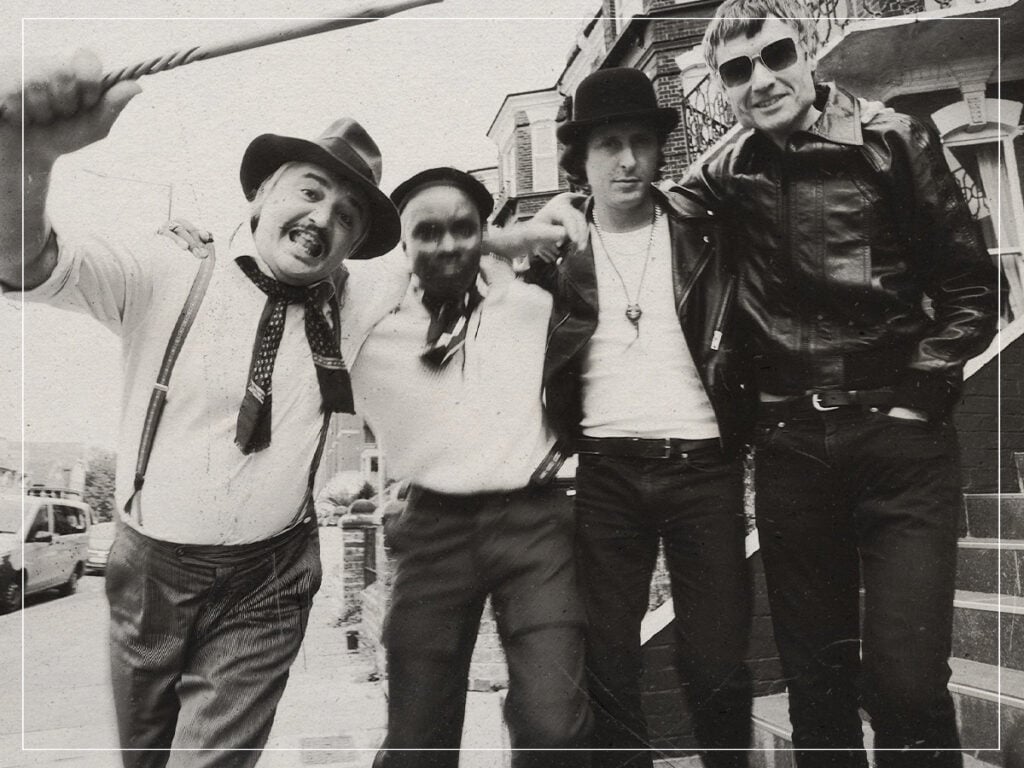
The Who
Not only was Pete Townshend, The Who‘s guitarist and principal songwriter, recently shamed for his comments on Keith Moon and John Entwistle’s passing, but he has always been vocal about his dislike for Roger Daltrey. The group always fought with one another, both verbally and physically. In fact, there is perhaps no band on this list who have shared as much obvious disdain for one another as The Who.
But, when all is said and done, Daltrey and Townshend share the most issues. The two powerhouses of the band have always butted heads. The two innately irritate each other, which is remarkable considering how long they have been together in a group and how this certainly is no recent beef. Another example of how if one does one thing, the other goes out their way to do the other was when Roger Daltrey spoke about his ardent support for the Brexit campaign, and Townshend was vocal in his support for remain saying to The Telegraph: “I’m a Remainer, he [Roger Daltrey] is a Brexiteer. I believe in God; he doesn’t.”
Townshend and Daltrey continue to fight during their live performances with a particular moment where “Roger comes over to me, stands next to me and makes some kind of soppy smile, which is supposed to communicate some kind of Everly Brothers relationship we have for the audience, which isn’t actually there,” infuriating the guitarist to he point he recognises the tune now as his lowest on stage moment.
The guitarist continues, “It’s supposed to be an act where I’m supposed to collude like ‘we know each other very well we look like enemies, but we are friends really’ kind of look. Often that will be the moment where I look him in the face and go ‘you fucking wanker’, and he gets angry when I do that,” he says amidst a fit of laughter.
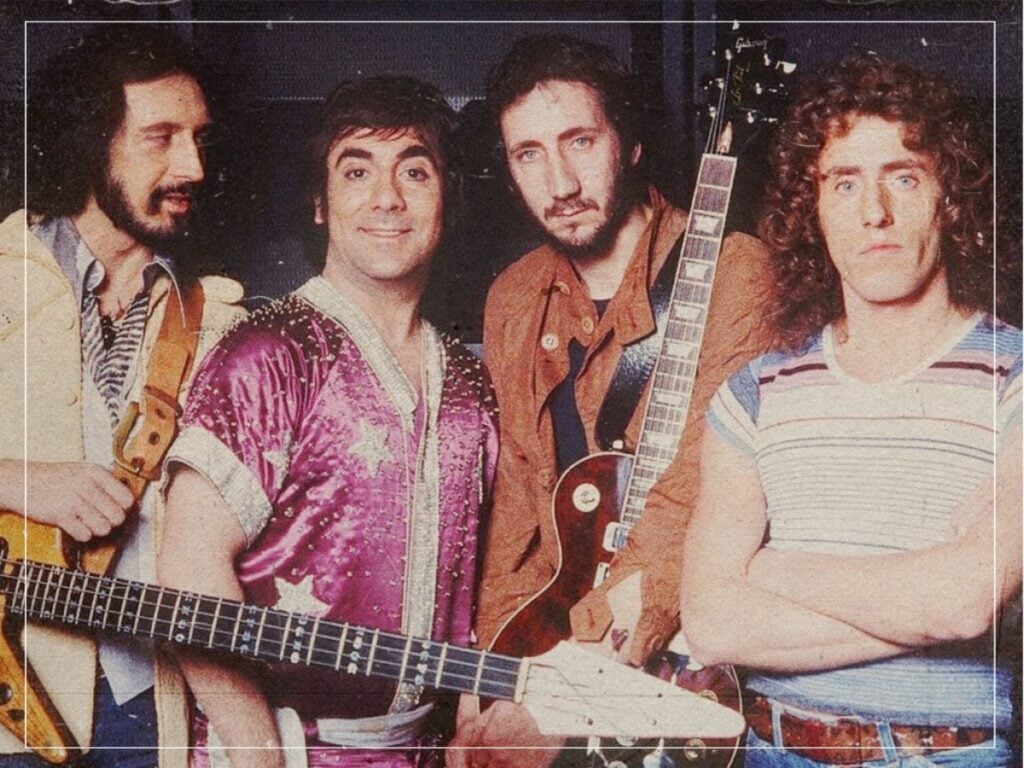
Simon and Garfunkel
It may seem silly to think of Paul Simon and Art Garfunkel bickering over pointless band details; their music is so soft and indelibly delicate that any strong words feel misplaced when considering the pair. However, their feud is a searing one and belies their beautiful music. It all began when, during their time as Tom and Jerry, Simon was offered the chance to record two solo singles, something he forgot to tell Garfunkel.
The real issue was that while Garfunkel had one of the smoothest vocals around, it was Simon who was the group’s songwriter, and because of that, he held all the cards. “They both envied the other’s place in the team,” the duo’s manager said. “Paul often thought the audience saw Artie as the star because he was the featured singer, and some people probably thought Artie even wrote the songs.
“But Artie knew Paul wrote the songs and thus controlled the future of the pair. I don’t think he ever got over what happened with Tom and Jerry.” Following a show in 1970, the dup shook hands in the parking lot and never returned to the stage together, “With Artie, there was no reason to talk about it,” said Simon: “When he agreed to make Carnal Knowledge, something was broken between us… I just wanted to move on. We were finished.”
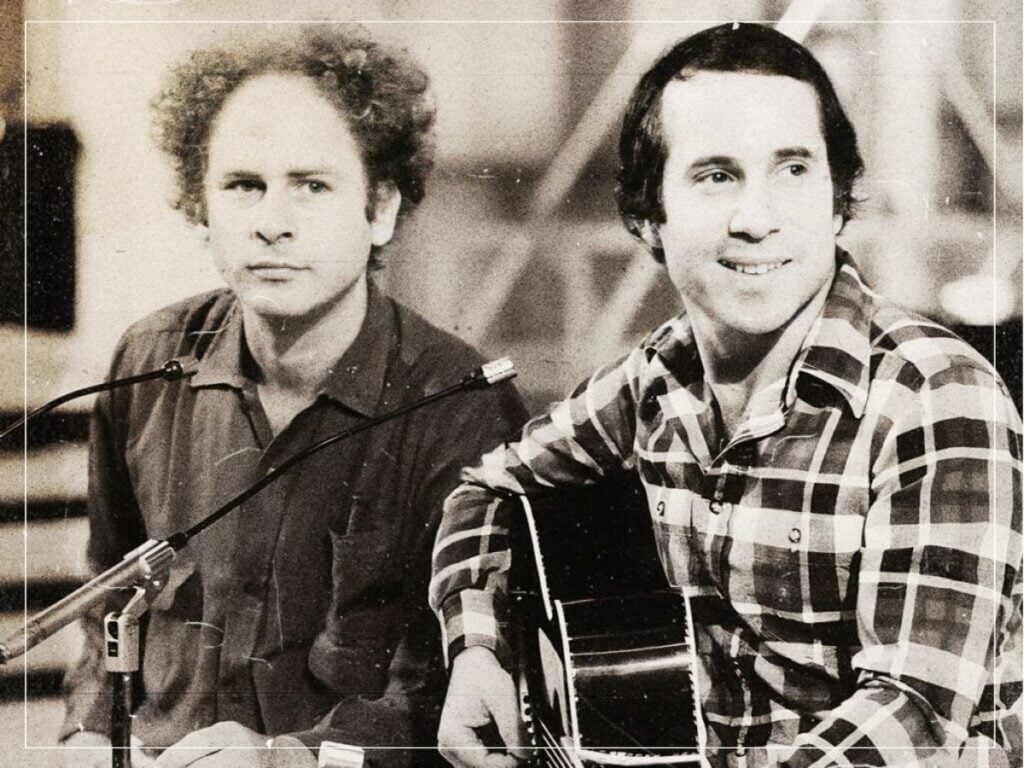
Ramones
The writing was on the wall for the Ramones almost as soon as they spraypainted their names on it. The forefathers of New York City punk the quartet may not have shared any bloodlines, but they fought like brothers. Apart from the tempestuous relationships that undercut everything they did, the real dispute was between Joey and Johnny Ramone.
The lead guitarist and singer of a group are always meant to have the odd scuffle, but Joey and Johnny were just fundamentally different people. Johnny, the son of a hard-drinking construction worker who instilled Republican values into the guitarist at every turn, was miles away from the awkward and liberal Joey. The two perpetually clashed and it wasn’t just their political values which were misaligned.
Perhaps the worst moment came when Johnny reportedly took Joey’s girlfriend from him, which prompted Joey to write ‘The KKK Took My Baby Away’. Joey and Marky had also been involved in a feud that was thankfully buried a few years before Joey’s sad death in 2001.
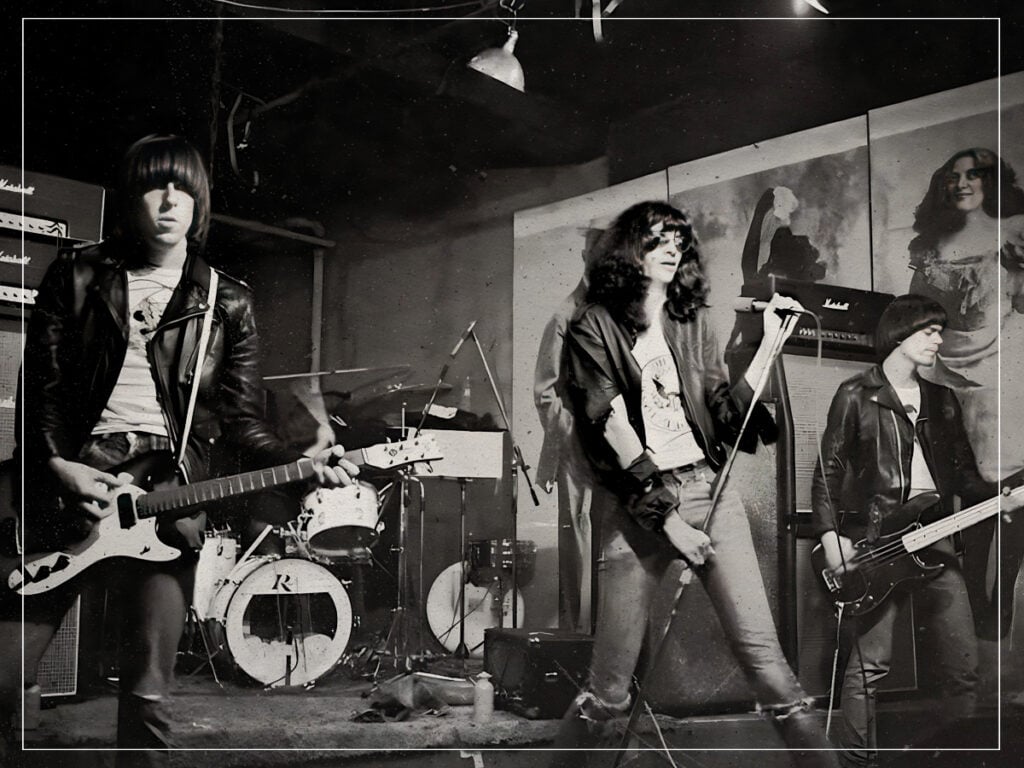
Pixies
Pixies are one of the most underrated bands of all time. More often cited as a searing inspiration above being regarded as one of the greatest bands of the alternative rock explosion, the Pixies have often gone under the radar. Another note about the group that is seemingly surrounded by secrecy is their inter-band battles.
The two generals of this war, a war which raged on for nearly a decade, was the band’s two principal members: Kim Deal and Francis Black. The duo always experienced a fraught relationship, but as Deal’s songwriting knack began to beckon and demand she be given more time to express herself creatively, the guitarist became despondent with Black’s unrelenting control.
In 2004, the two put those differences aside to reunite Pixies and begin one of their career’s more commercially fruitful periods. However, despite the singer claiming they were “always friends,” now it would appear that the chances of the group ever reuniting with Deal and Black in the band is as far away as it has ever been, with Deal more interested in pursuing her own creative projects.
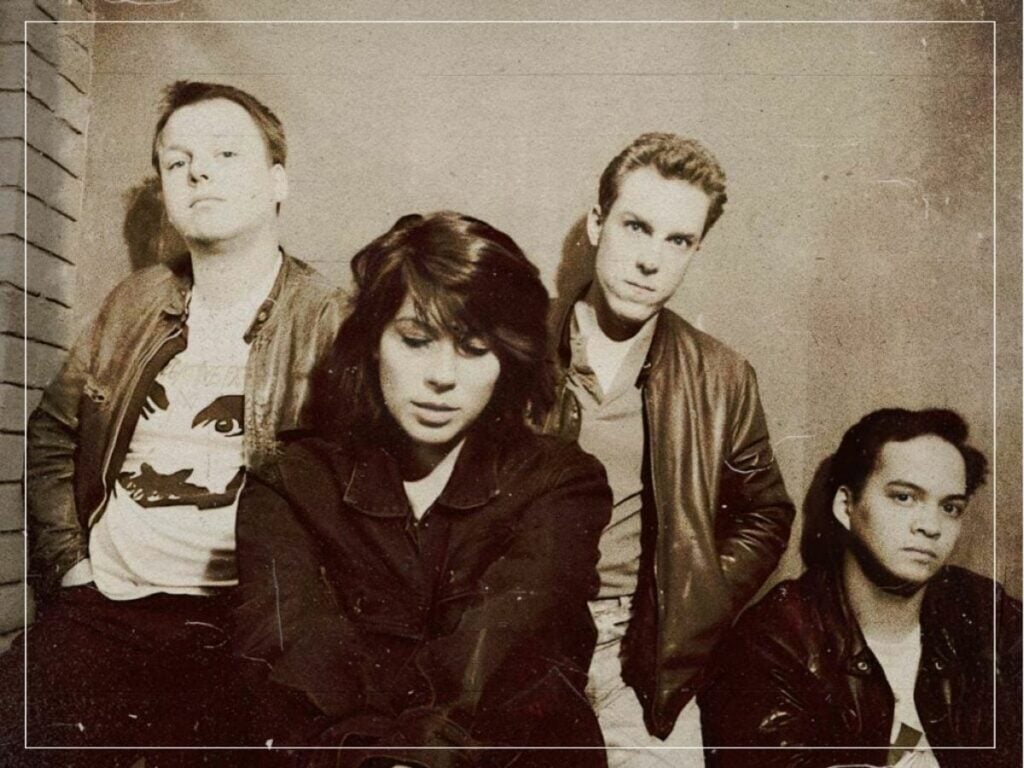
Guns N’ Roses
Success is usually one of the biggest traps bands must navigate during their time together. Even the smallest taste of success can send a band into a frenzy, like dropping a prick of blood into a pool of sharks. But when that success is truly unfathomable, then chances are you’re in for a bumpy ride. In the ’80s, there was simply no band more successful than Guns N’ Roses.
The band eventually broke up due to their unchartered success, substance abuse issues and the huge egos that invariably accompany it. One such ego was Axl Rose who seemed hell bent on destroying the band and everyone involved with it.
The singer had become the undoubted king of rock in the 1980s and continued his dominance in the early ’90s too, finding himself front and centre for the most critical moments of the band’s history. However, as Rose began to see himself as the band’s focal point more and more, he began to clash with the other members, most notably, the band’s guitarist, Slash.
An icon in his own right, Slash didn’t take kindly to Rose’s behaviour and left the group with the intention of never returning or working with Rose ever again. “It wasn’t even me necessarily leaving the band,” he told Piers Morgan in 2012, “it was not continuing on with the new band that Axl put together that he was now at the helm of, which was the new Guns N’ Roses. I was given a contract to basically join his new band, and it took about 24 hours before I decided, I think this is the end of the line.”
Guns N’ Roses reunited in 2016 for an unprecedented tour but have since scuttled back to their respective mansions and seem intent on speaking ever again.
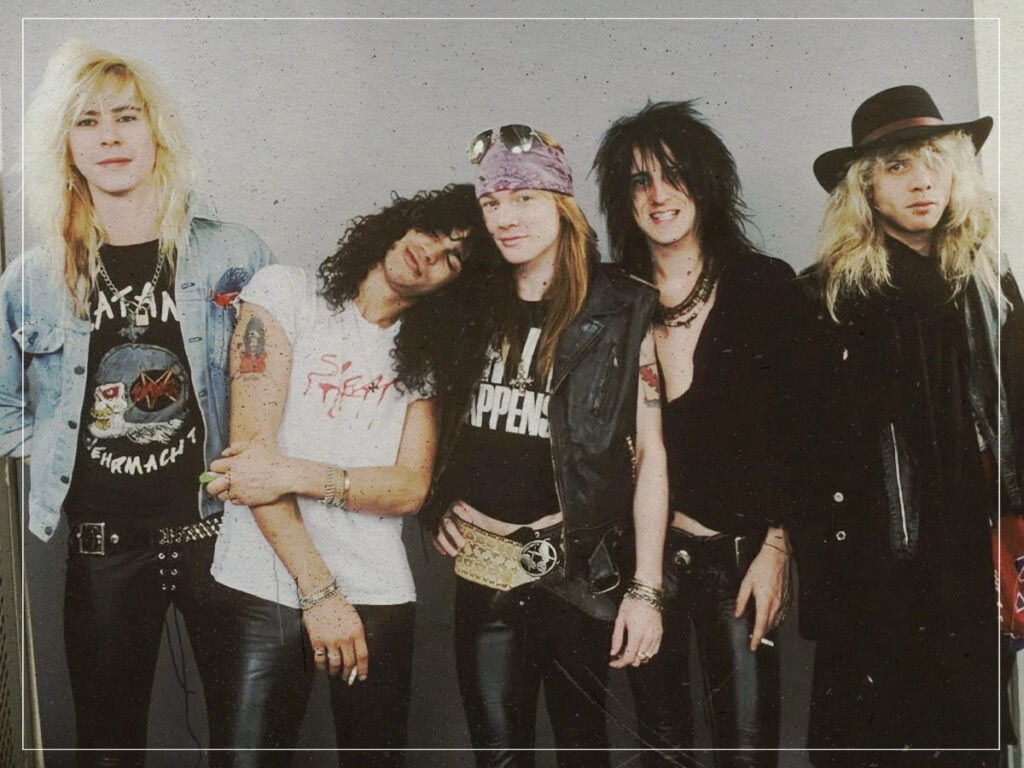
The Beach Boys
Few bands can define the decade of the ’60s as succinctly and sweetly as The Beach Boys. Their iconic surf-rock sound set the waves in motion for a cultural revolution, and with their album Pet Sounds, they always confirmed their place in pop music. One man, Brian Wilson, largely underpinned those successes as his meticulous style and devotion to creating pop soundscapes that nobody had even dreamed of before gave the band their point of difference amid a swelling of pop groups.
Wilson was the man behind the music, and he steered The Beach Boys down whatever creative street he chose. When Wilson’s mental health began to suffer amid the growing pressure of being in charge, it was Mike Love who grew disdainful, perhaps upset at the lack of commercial opportunity Wilson taking care of himself offered. It was a difficult spot to be in and Love seemingly believed that the group could do just fine without Wilson steering the ship.
Ever since then, the two factions have been like warring empires. While Love continued to tour with The Beach Boys name, even after many of the band’s familial members had left or sadly died, Wilson has found his own career outside of the group. However, it hasn’t stopped the two from feuding, and they continue to fight their battles in court occasionally. It’s a dark part of The Beach Boys sunny disposition and shows that no matter the music, when money is involved, things get ugly, quickly.
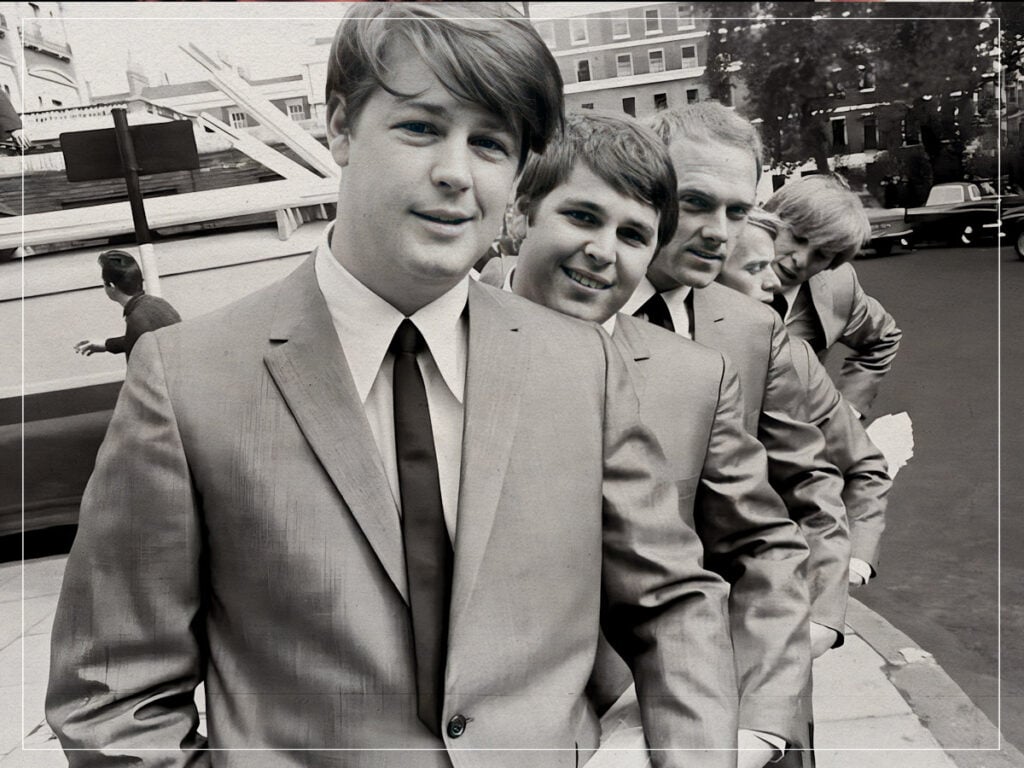
Related Topics


